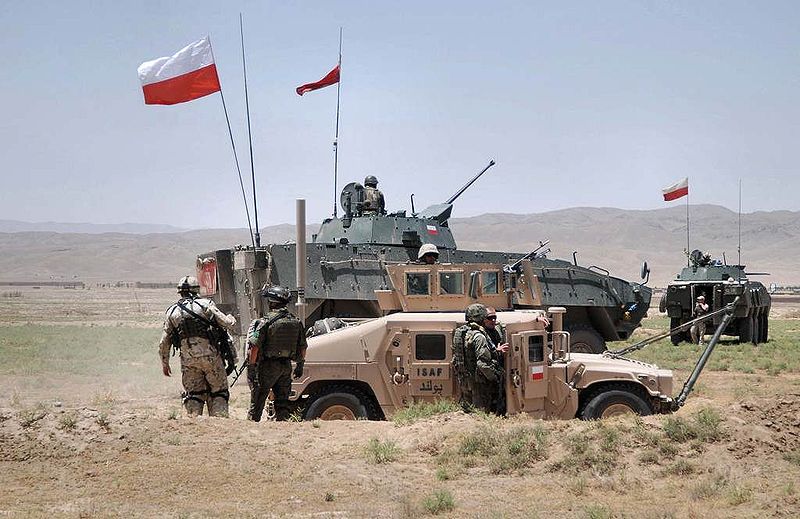
From Andrew Exum, World Politics Review: Many Poles now worry the NATO alliance is but a shadow of its former self and wonder whether it can be counted upon for support in the future. Though there is indeed cause for much concern in this regard, there is also reason for some optimism.
The last two campaigns waged by NATO have been in Afghanistan and Libya. The former has been an abject failure. The latter has largely been a success.
In Afghanistan, the NATO-led International Security Assistance Force (ISAF) is comprised of troops from 47 different nations — in addition to, as U.S. military officers wryly add, the U.S. Marine Corps. . . .
To properly understand the problems of the coalition in Afghanistan, it is useful to draw a table with two columns, one representing will and the other capability. The armed forces of some contributing nations are both competent and willing to fight. Some, meanwhile, are competent but unwilling to fight, while others are willing to fight but incompetent. Finally, some forces are both incompetent and unwilling to fight. The commander of ISAF — an acronym that is sometimes caustically if inaccurately said to stand for “I Saw Americans Fighting” or “Internationals Sit, Anglos Fight” — is burdened with all four kinds of forces and must do his best with each. . . .
The intervention in Libya was, all things being equal, a tremendous success for the alliance. Skeptics of the intervention, including myself, were caught off-guard by the ease with which the NATO air campaign hastened the rebel march on Tripoli. But behind the eventual success of the campaign, as well as the genuinely encouraging defense cooperation between the United Kingdom and France that it underscored, were some worrying signs.
For one thing, the Libya intervention demonstrated that the militaries of non-U.S. NATO nations have not invested in an appropriate amount of intelligence, surveillance and reconnaissance platforms or in in-flight refueling capabilities. Virtually all of the targeting and air tasking orders were provided by the United States, which also had to provide much of the ammunition once the allies simply ran out. In addition, a recent report by the Royal United Services Institute notes that up to 85 percent of the fuel for the air campaign in Libya was provided by the U.S. Air Force.
Meanwhile, the Royal Navy, which guarded the sea commons for a century, is today a shadow of its former self, with just 19 frigates and destroyers. That is barely more than the number of ships, 18, that were lost or damaged in the Falklands campaign. One British warship previously destined for the scrapheap was turned around in order to participate in the Libya campaign. . . .
We have known for quite some time what the European states need to do to remain relevant militarily in a resource-constrained environment. The financial crisis highlights the degree to which monetary union was not followed by greater political integration, and in the same way, each European state still maintains its own independent military organizations. If the European member states of NATO were to better pool their resources, with each state investing in niche capabilities, Europe could still field robust, deployable, independent military forces. Aside from the encouraging Anglo-French cooperation, though, that does not seem likely to happen. At the end of the day, states are reluctant to rely on their neighbors to provide core defense requirements, yet they are also reluctant to reallocate the resources of the state toward their own militaries.
Andrew Exum is a senior fellow at the Center for a New American Security and teaches a course in low-intensity conflict at Columbia University’s School of International and Public Affairs. He blogs at Abu Muqawama. (photo: Jakub Czermiński/Polish Defense Ministry/ISAF)
Image: poland%20MoD%203%2022%2012%20Polish%20troops%20ISAF.jpg
